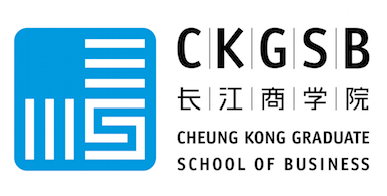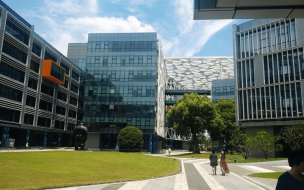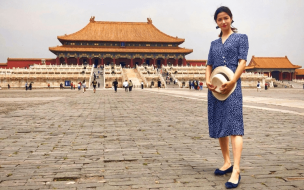For international business school applicants, studying an MBA in China is an increasingly well-trodden path.
Business school applications in the Asia Pacific are booming, rising by 8.8% between 2017 and 2018 alone, and China’s business schools are benefitting from the global influx of talent.
One international student who’s following this trend is Denise Tay Ziying.
Having graduated with an undergraduate degree in accounting and finance from the UK’s University of Manchester, Denise moved back to her home country of Singapore to start her career.
Here, she landed a marketing role with fintech startup, GoBear—a comparison site for insurance and finance products.
Hoping to gain a broader understanding of business in Asia, and a change of scenery, Denise decided that an MBA was the perfect next step for her career, and she set her sights firmly on China.
Through the MBA program at the Cheung Kong Graduate School of Business (CKGSB), Denise hopes to gain more global exposure, learn about the Chinese market, and ultimately land a job there.
BusinessBecause caught up wit Denise to find out what drew her to China, and why she wants to stay.
A growing economy
It’s a much-repeated fact that China has the world’s largest economy, and for ambitious MBA candidates like Denise, the country’s economic clout means exciting opportunities.
The International Monetary Fund (IMF) expects China’s economy to continue growing in the coming years, and graduates from China’s top business schools are well-positioned to take advantage of this expanding market.
When Denise graduates from CKGSB in 2020, she’ll be joining the ranks of alumni who have gone on to run 60 of Fortune China’s top 500 companies.
Coming to China from Singapore, Denise was excited to learn how Chinese business operates.
“China has always been a market that was a question mark for me, and I was curious to learn more about the differences in what drives businesses, and how consumers react differently here,” she explains.
On the MBA program, Denise and her peers have the chance to delve deep into China’s economic landscape, through elective courses like Branding and Sales in China, and Valuation and Investment in China.
“The MBA is providing me with the tools and resources I need to understand the business landscape here compared to the rest of the world,” Denise reflects.
An international environment
Denise was also drawn to China’s unique, and increasingly international, culture.
Beijing in particular stands out as a global city, ranked ninth in the world by AT Kearney’s 2019 Global Cities Index—the highest ranking city in China.
This ranking is based on a range of factors, including how attractive the city is to global talent, and international business activity.
As the world’s top receiver of foreign direct investment, China hosts multinational companies from around the world, opening up valuable networking, learning, and internship experiences for MBAs.
This atmosphere also attracts international students. Studying abroad, Denise is in good company at CKGSB, where almost a quarter of students in her cohort are international.
“CKGSB attracts talents from many different backgrounds,” she reflects. “It provides the opportunity to interact with, learn from, and gain perspective from a diverse group of people.”
Although adapting to this new environment was challenging at first, Denise soon found her feet by keeping an open mind, she says. Within her cohort, friendships soon began to blossom.
Today, Denise reflects, these peers are virtually family. Her MBA cohort is also the beginning of a strong Chinese network.
At CKGSB, this network is strengthened by company visits, annual careers fairs, and a mentorship program.
A thriving tech scene
When she graduates, Denise hopes to make the most of CKGSB’s careers service, and find herself a place in Beijing’s tech sector. “The industry is booming in China,” she notes.
Home to giants like Tencent, Baidu, Huawei, and Alibaba—all of which are employer partners for CKGSB—China is home to plenty of tech-related opportunities.
The tech startup scene is equally vibrant. In 2018 alone, around 100 Chinese tech startups reached a value of $1 billion, earning the fabled ‘unicorn’ status.
Denise has already started to explore China’s tech landscape, working last summer as a global social media manager with the Beijing branch of She Loves Tech.
She Loves Tech is a global platform that aims to promote technology for, and by, women. The organization also runs the world’s largest tech startup competition for women-led businesses.
This experience, along with her studies, has added up to a vibrant and memorable experience.
“Beijing is a city with an inexplicable charm, and I’m not ready to say goodbye yet!” she says.








